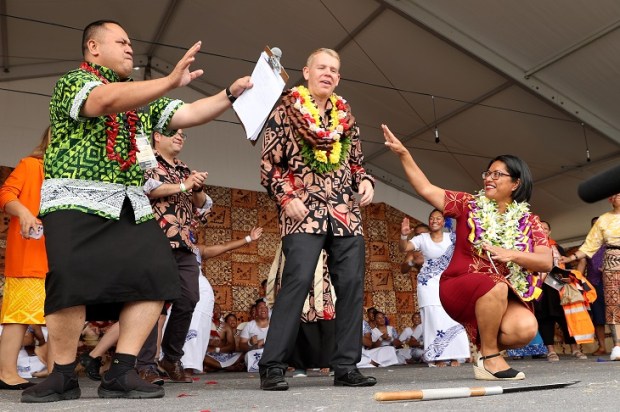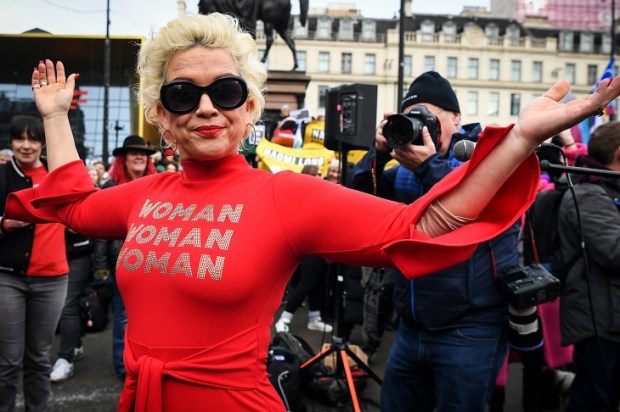A perfect storm is hitting the New Zealand university sector. Social justice activism is aggravating the extreme financial difficulties that our universities are facing, only slightly eased by recently-announced Government funding relief.
Intensified by the very slow post-Covid restart to international student business, the situation creates a long-term risk to the health and international reputation of our universities. The University of Chicago Kalven Report of 1967 noted that universities have a:
great and unique role to play in fostering the development of social and political values in a society’ ‘emphasising the need for neutrality.The instrument of dissent and criticism is the individual faculty member or the individual student. The university is the home and sponsor of critics; it is not itself the critic.
The first of four fundamental principles in the 1988 European Bologna Accord on the role of universities affirms:
The university is an autonomous institution at the heart of societies differently organised because of geography and historical heritage; it produces, examines, appraises, and hands down culture by research and teaching. To meet the need of the world around it, its research and teaching must be morally and intellectually independent of all political authority and economic power.
New Zealand universities are losing sight of this need for intellectual independence from all political authorities.
Gender and identity political activism is widespread internationally and in New Zealand. We could easily fill this article with examples.
Recently, for example, a senior New Zealand academic was warned that questioning a perceived fall in academic standards would lead to disciplinary action.
Academics who dare to express a rational view counter to the orthodoxy on gender diversity or the indigenisation of university culture are being silenced.
Failing to address matauranga Māori (Māori traditional knowledge) in grant applications, even in mathematics or physics, may jeopardise the chance of winning a grant.
Social justice activism is corroding New Zealand’s university system and our wider society. University students must be free to study and debate social justice, but it is the State, courts, and charities that must deliver it. Universities should be places of open enquiry and debate in the quest for evidence-based truth on matters of controversy. Institutions where subjective experience or ideological perspectives are presented as unarguable truth, become centres of indoctrination.
New Zealand universities appear to be competing to be led by the Treaty of Waitangi without a clear definition of what that means. The 1840 Treaty between Māori tribes and the Crown around the governance of the country is a short document that is silent on educational matters.
At the risk of being marginalised, academics are being pressured to support the adoption of Te Ao Māori (Māori language, and respect and acknowledgment of Māori customs and protocols) and embracing the Māori story and identity.
The Performance-Based Research Fund, which formerly rewarded research excellence and relevance, now focuses on diversity, equity, and inclusiveness and employs Māori co-chairs for 13 of the 14 research assessment panels.
Appointing co-chairs based on ethnicity will lead to a shift from a system of benchmarking research quality to a race-based system that is inherently biased in one direction.
Māori co-chairs can comment on non-Māori portfolios, but non-Māori panelists may not be prepared to challenge the expert assessment of Māori co-chairs on Māori portfolios, creating an accountability problem, disincentives, and side effects. For example, how can activity in matauranga Māori or community engagement be an international research activity?
The major concern is that panel judgment will be severely constrained by the new performance-based research fund definitions of research. The appointment of co-chairs based on ethnicity then looks like the appointment of enforcers.
These problems have arisen because of activist political capture, which has created new definitions of research and the need for enforcers.
Few dispute the importance of Māori culture in New Zealand and the need for more Māori and Pasifika to enter universities on merit. However, the imposition of indigenous culture and language, social justice activism, and identity politics have politicised universities.
They have lost their standing as the trusted homes and protectors of freedom of thought, freedom of speech, and impartial and objective discourse.
Yet these ideals are critical for teaching and research in a modern university, and social justice objectives should never dilute academic merit as the key criterion of student learning and research success.
This raises the question of how the international standing of New Zealand universities will be affected.
In recent years, all New Zealand universities have been ranked in the top 500 universities worldwide, but it will be impossible to maintain this status in an ethnocentric climate where a culture dominated by social justice activists has created a narrow, inward focus.
So graduates will be less employable internationally, and international students, particularly from China and India, will look elsewhere to find politically neutral universities with broad curricula unaffected by the adoption of a local indigenous cultural character or a distinct political stance on gender and identity issues.
Reduced international student interest in New Zealand will be a blow to our research and high-technology industries.
International students make up the majority of those doing doctorates in science and engineering at several of our universities.
Their loss during the Covid border closures for over two years reduced the supply of skilled workers and the creation of new intellectual property flowing to start-up businesses.
New Zealand universities have long enjoyed strong international research reputations but can ill afford to adopt a cultural position that reduces the breadth of their international appeal and, ultimately, their credibility.
International partners would look askance at New Zealand if it moves away from a focus on international research collaboration in science and technology and Government ministries promote parity of traditional Māori knowledge and science, a move already underway in early childhood, primary and secondary education.
All of this reflects pressures in other countries to replace liberal epistemology in science with non-scientific, politically-motivated criteria stemming from the critical social justice movement.
Many New Zealand academics are very uncomfortable with this direction but are afraid to speak out for fear of disciplinary action, loss of promotion prospects, being labeled racist, or being made redundant.
The cultural reshaping of New Zealand universities will exacerbate financial pressures. Additional staff will be appointed to dedicated roles and to teach courses that may not pay their way but meet a compliance goal.
Since 1990, universities have been funded partly through student fees and operated under increasing financial pressure as increases in government funding have fallen around 40 percent below the cumulative CPI increase.
Financial pressures, partly the driver of international fee-paying enrolments, are now sufficient to compromise the ability of our universities to deliver a broad range of high-quality teaching and research programs and to attract top academic staff from overseas.
In early 2020, there was a complete shutdown of the country’s $1.5 billion international student business ($5 billion, if wider economic benefits are included) except for online enrolments and students already in New Zealand.
The country has been slow to rebuild international enrolments towards the 19 per cent of total enrolments in 2019, and was not fully open until late 2022.
The government had no interest in permitting Covid-19 quarantine in student hostels. The situation has been made worse by the loss of capability in Immigration New Zealand, which became a major bottleneck in processing student visas when the country re-opened.
International enrolments are essential for the financial viability, cultural enrichment, and international connectedness of our universities, for business and professional connections built by international graduates, for our research efforts, and the wider economy. The country cannot afford to compromise this business through universities being caught up in social justice activism.
Universities should do several things to restore health to the system.
They should incentivise freedom of speech and political neutrality. It is not the remit or responsibility of the university to be the kind and conscionable face of the State or any political party. The government could influence internal policy by strongly encouraging freedom of speech and by rewarding financially an absence of social justice politics driving programs and staff behaviours.
Carry out an internationally benchmarked review of university funding and reset base student funding levels, with a higher proportion of government funding directly supporting institutional operations.
Re-direct the Performance Based Research Fund back from diversity, equity, and inclusiveness to a renewed emphasis on research excellence and relevance.
Reboot Immigration New Zealand to ensure that ample, properly trained staff deliver a speedy international student visa service.
Get the eight universities to agree to maintain international standing by adhering to a liberal epistemology in science, resisting moves to give equivalence in science studies to indigenous or minority ‘ways of knowing,’ ensuring respect for multiple viewpoints while holding universities to a politically-neutral position.
The health, international engagement, and reputation of our university sector are critical to the functioning of our society and economy.
Universities must renew their focus on broad, non-politically-aligned programs, science teaching, and research, reflecting the best of international knowledge, with freedom of speech protected so that opposing philosophical views can be debated and proponents of a counter view are not cancelled.
New Zealand must not allow itself to become an inward-looking Pacific ethnostate, a direction fostered by the government. It is vital for their future international credibility that our universities are put on a viable financial footing, return to being completely apolitical and resist the changes being wrought by social justice activism.
A longer version of this article appeared in Breaking Views, New Zealand, on 28 June 2023. The opinions expressed are those of the authors and no one else.
John Raine is an Emeritus Professor of Engineering and was Deputy and/or Pro Vice-Chancellor in three New Zealand universities.
Dr David Lillis is a retired researcher and statistician with degrees in physics and mathematics who worked in research evaluation for the Foundation for Research, Science, and Technology.
Peter Schwerdtfeger is a distinguished professor in theoretical chemistry and physics and Head of the New Zealand Institute for Advanced Study at Massey University.

























